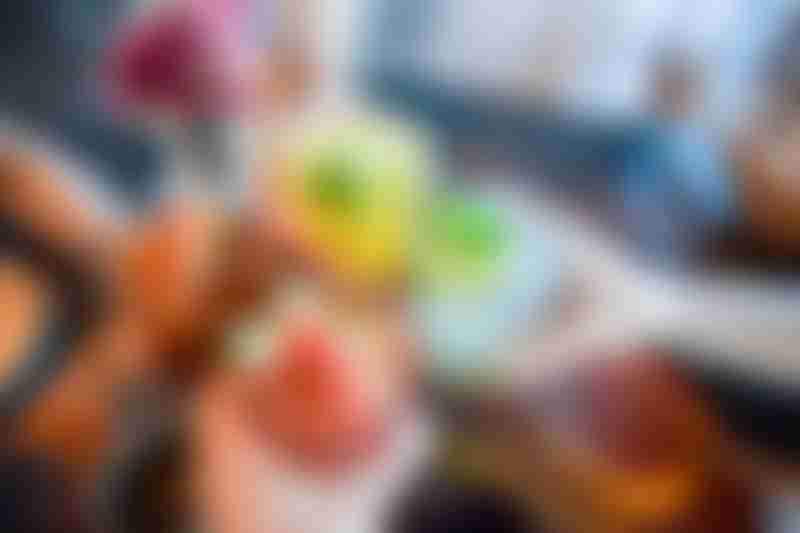How Heavy Drinking Increases Colorectal Cancer Risk

Source: Shutterstock.
When it comes to cancer and its associated causes, many might associate heavy drinking with the increased risk of liver cancer.
However, did you know that regular, heavy alcohol use can also increase the risk of colorectal cancer? While liver cirrhosis/scarring and liver cancer are frontrunners when it comes to the damage that excessive alcohol consumption can cause, colorectal cancer is another possible outcome that does not come to mind as frequently.
While it makes sense that alcohol consumption is taxing on the liver — the chief organ that is responsible for breaking down alcohol — you might be wondering how it could possibly cause problems in your gut.
Colorectal cancer, as heterogeneous as it is, has multiple causes and factors that exacerbate the risks of getting it. Multiple studies have shown not only the correlation between heavy alcohol consumption and the occurrence of colorectal cancer but have also found evidence of the carcinogenic components of alcohol leading to colorectal cancer.
Heavy alcohol consumption
For a start, how do you know if your boozing habits are considered “heavy”? The Center for Disease Control and Prevention (CDC) considers it excessive consumption in instances when:
- Alcohol is continuously consumed over a period of 2 to 3 hours, i.e. binge drinking. In the case of women, four or more drinks is considered excessive. For men, five or more drinks is considered binge drinking,
- Drinking more than eight drinks (for women) or 15 drinks (for men) a week,
- The consumer is underage/age below 21, or
- The consumer is pregnant.
How does alcohol consumption cause colorectal cancer?
A quick look at how alcohol is broken down in the body will help with understanding its effects on colorectal cancer risk.
In alcoholic beverages, ethanol is the compound that contributes to the effects of boozing that many are familiar with: sedation, slurred speech, impaired judgment, uninhibited behavior, euphoria and impaired sensory and motor skills. In the body, ethanol can be broken down by different enzymes and pathways. Usually, it is metabolized into acetaldehyde before it is further broken down into acetate. Acetate is subsequently broken down into water and carbon dioxide for elimination from the body.

Alcohol metabolism. Adapted from: LibreTexts.
The metabolic compound significant to colorectal cancer is acetaldehyde, which can cause damage to both genetic material as well as proteins in cells. As with how many cancers begin, repair of damaged DNA can sometimes introduce mutations and lead to uncontrolled cell proliferation.
Particularly in the colon, the presence of gut bacteria — important in the production of certain key vitamins — can also affect how ethanol is metabolized and directly increase colorectal cancer risk. For one, the by-product of ethanol metabolism, reactive oxygen species (unstable molecules that contain oxygen), can also cause damage to cellular DNA, proteins and membranes through a process called oxidation.

Reactive oxygen species such as hydroxyl radicals can damage DNA by oxidizing nucleotides, in this case, guanine, to form molecular lesions. If not repaired, this oxidative damage can cause mutations and/or altered gene transcription, which may lead to cancer.
Adapted from: Wells et al, 2010
Besides physiological processes resulting in carcinogens accumulating in the gut, some alcoholic beverages may already contain cancer-causing compounds that result from the fermentation process. These include nitrosamines and hydrocarbons, which are also associated with red and processed meats that exacerbate colorectal cancer risk.
With all that in mind, you might want to reconsider your meal choices if the classic steak-and-wine pairing is on the dinner menu.
How much higher is the risk of colorectal cancer?
While even just moderate consumption of alcohol will increase the risk of getting colorectal cancer, the amount of alcohol consumed correlates with the increase in risk.

Source: Shutterstock.
As compared to not consuming any alcohol at all, consumption leads to an estimated 1.2 to 1.5-fold increase in cancer risk. At the same time, every additional 10g of alcohol consumed daily results in an overall 7% increased risk of colorectal cancer.
You might fancy your chances with the deceivingly low numbers, but remember, your body will also be at risk of other problems such as liver cancer, stroke, high blood pressure, heart disease and more when you drink.
Prevention is better than cure
Given the multitude of negative impacts that alcohol has on the body, complete avoidance may be ideal in order to minimize risk. However, avoiding alcohol alone may not completely prevent cancerous growth in the colon. A comprehensive look at your family history, other eating and lifestyle habits, and existing health conditions will help give a clearer picture of your colorectal cancer risk.
Closely monitoring your health with regular screening for colorectal cancer is the first and most important step in detection, diagnosis and subsequent treatment.